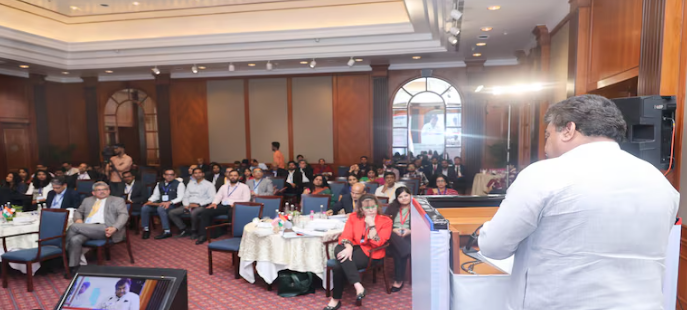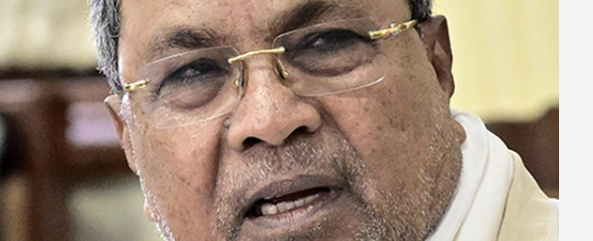Karnataka Cabinet to Discuss:-
The Karnataka Cabinet is gearing up to discuss a pivotal draft bill today, which seeks to introduce local quotas in educational institutions and government jobs. This significant move aims to promote regional representation and address long-standing demands for equitable opportunities across the state. The proposal has sparked extensive debate and anticipation among the citizens of Karnataka.
Tackling Regional Disparities
The proposed draft bill aims to address regional disparities by reserving a specific percentage of seats in educational institutions and government jobs for local residents. This initiative is particularly focused on benefiting students and job seekers from underrepresented and marginalized communities within the state.
Chief Minister Siddaramaiah highlighted the bill’s significance, stating, “The local quota bill is a crucial step towards ensuring equal opportunities for all regions of Karnataka. It aims to uplift our youth from rural and underdeveloped areas, giving them better access to education and  for more information click on this link
for more information click on this link
Key Provisions of the Draft Bill
The draft bill includes several key provisions designed to implement the local quota effectively:
- Percentage of Quota: The bill proposes a specific percentage of seats to be reserved for local candidates in educational institutions and government jobs. The exact percentage is expected to be finalized during the Cabinet discussion.
- Definition of Local Candidate: The bill defines a local candidate based on criteria such as domicile, length of residence, and completion of education within the state.
- Implementation Mechanism: The bill outlines the process for identifying eligible candidates, the roles of educational institutions and government departments in enforcing the quota, and measures to ensure transparency and fairness in the selection process.
- Monitoring and Evaluation: The bill includes provisions for setting up a monitoring committee to oversee the implementation of the local quota and address any grievances or challenges that may arise.
Support and Opposition
The draft bill has received mixed reactions from various stakeholders. Supporters argue that it is a necessary step to rectify regional disparities and uplift communities that have been historically neglected. They believe the local quota will provide much-needed opportunities to talented individuals disadvantaged due to their geographical location.
Dr. R. Srinivas, a social activist, expressed his support for the bill, stating, “This bill is a positive move towards achieving social justice. It will help bridge the gap between urban and rural areas and ensure that students and job seekers from all regions have a fair chance.”
However, there are also voices of concern and opposition. Critics argue that the local quota could lead to further divisions and may not address the root causes of regional imbalances. Some fear that it could undermine meritocracy and create new forms of discrimination.
“We need to be cautious about implementing such quotas. While the intention is good, we must ensure that it does not lead to unintended consequences. The focus should be on improving the overall quality of education and job opportunities for all,” said Dr. Meenakshi Rao, an education expert.
Political Implications
The discussion and potential approval of the draft bill are expected to have significant political implications. With upcoming elections, the ruling party hopes that this move will resonate with voters, particularly in rural and underserved areas. Opposition parties are likely to scrutinize the bill closely and may use it as a platform to address their concerns and propose alternative solutions.
Public Engagement and Consultation
The state government has indicated that it will seek public input and engage with various stakeholders before finalizing the bill. Public consultations, town hall meetings, and discussions with educational institutions, industry representatives, and civil society organizations are planned to gather diverse perspectives and ensure the bill is comprehensive and well-received.
Addressing Historical Inequities
The move to introduce local quotas is seen as an effort to correct historical inequities and ensure that all regions of Karnataka are fairly represented in educational and employment opportunities. For decades, certain areas have lagged in terms of development and access to resources, leading to significant disparities in opportunities and outcomes.
By reserving a percentage of seats and jobs for local candidates, the bill aims to level the playing field, giving individuals from disadvantaged backgrounds a better chance to succeed. This approach aligns with the broader goals of social justice and inclusive growth, ensuring that no one is left behind.
The Role of Educational Institutions
Educational institutions play a crucial role in the successful implementation of the local quota. Universities, colleges, and schools will need to adapt their admission processes to accommodate the new quota system. This may involve revising admission criteria, updating application forms, and ensuring that all eligible candidates are given fair consideration.
Dr. Prakash Rao, a professor at a leading university, emphasized the importance of collaboration between the government and educational institutions. “Implementing the local quota will require a coordinated effort. Institutions must work closely with the government to ensure that the process is transparent and efficient. It is essential that we provide equal opportunities to all students while maintaining high academic standards.”
Government Jobs and Employment Opportunities
The local quota bill also extends to government jobs, aiming to improve representation in public sector employment. By reserving positions for local candidates, the government hopes to create a more diverse and inclusive workforce that reflects the demographics of the state.
Rajesh Kumar, a job seeker from a rural area, expressed optimism about the bill. “Finding a government job has been challenging due to the stiff competition and lack of opportunities in my region. The local quota gives me hope that I will have a fair chance to secure a job and contribute to my community.”
Ensuring Fair Implementation
Ensuring the fair implementation of the local quota will be critical to its success. The monitoring committee proposed in the bill will play a key role in overseeing the process and addressing any issues that arise. This committee will be responsible for ensuring that the quota is applied correctly, that eligible candidates are identified accurately, and that any grievances are resolved promptly.
Transparency and accountability will be essential to building trust in the system. The government has pledged to provide regular updates on the implementation process and to engage with stakeholders to address any concerns.
Community Efforts and Support
Community organizations and local leaders have an important role to play in supporting the implementation of the local quota. By raising awareness, providing guidance, and assisting with the application process, these groups can help ensure that eligible candidates take full advantage of the opportunities available to them.
“We are committed to supporting our community members and ensuring they are aware of the new opportunities provided by the local quota. We will work closely with the government and educational institutions to ensure that the process is smooth and that no one is left out,” said Lakshmi Narayan, a community leader.  for more information click on this link
for more information click on this link
Long-term Impact and Vision
The introduction of local quotas is part of a broader vision for a more equitable and inclusive Karnataka. By addressing regional disparities and promoting social justice, the government aims to create a state where all citizens have the opportunity to thrive, regardless of their background or place of residence.
Over time, the local quota is expected to contribute to more balanced development across the state. By providing better access to education and employment, it will help raise the standard of living in underdeveloped areas, reduce migration to urban centers, and foster a sense of pride and belonging among residents.
Looking Ahead
As the Karnataka Cabinet convenes to discuss the draft bill on local quota today, all eyes are on the outcomes and decisions that will shape the future of regional representation in education and employment. The bill represents a crucial step in addressing historical inequalities and promoting inclusive growth across the state.
The government’s commitment to transparency, public engagement, and addressing potential challenges will be key to the successful implementation of the local quota. As the discussions unfold, the hope is that the bill will pave the way for a more equitable and just Karnataka, where opportunities are accessible to all, regardless of their geographical location.
Conclusion
The flood warning issued as the outflow from KRS dam crosses 50,000 cusecs is a stark reminder of the powerful forces of nature and the importance of preparedness. While the immediate priority is to ensure the safety and well-being of residents, this event also highlights the need for ongoing efforts to build resilient communities capable of withstanding natural disasters. Through coordinated efforts between the government, local authorities, and the community, it is hoped that the impact of this flooding can be minimized and that the affected regions can recover swiftly. ALSO READ:- Memory updated China and Philippines Reach Landmark Deal to Prevent Clashes at Scarborough Shoal 2024





промокод на продамус скидка подключение http://www.prodams-promokod.ru .
Приобретение диплома через надежную компанию дарит ряд достоинств для покупателя. Такое решение помогает сэкономить как длительное время, так и серьезные финансовые средства. Тем не менее, только на этом выгоды не ограничиваются, преимуществ гораздо больше.Мы готовы предложить дипломы любой профессии. Дипломы изготавливаются на настоящих бланках. Доступная стоимость по сравнению с крупными тратами на обучение и проживание. Заказ диплома о высшем образовании из российского ВУЗа будет целесообразным шагом.
Быстро купить диплом о высшем образовании: diplomk-vo-vladivostoke.ru/kupite-originalnij-diplom-s-zaneseniem-v-reestr-sejchas/
Мы можем предложить дипломы любой профессии по приятным тарифам.– ic-info.ru/forum/user/183849
https://ancientcivs.ru
Thanks for the article https://l-spb.ru/
https://mirka-master.ru/kupit-plastikovye-okna-v-sankt-peterburge-nadyozhnoe-reshenie-ot-kompanii-afina-okna/
Где купить диплом по актуальной специальности?
Купить диплом института по выгодной стоимости возможно, обратившись к надежной специализированной компании.: prodiplome.com
Мы предлагаем документы об окончании любых ВУЗов России. Документы производят на настоящих бланках государственного образца. enriquerp.listbb.ru/viewtopic.phpf=4&t=1385
For more information https://millionigrushek.ru .
купить диплом в москве купить диплом в москве .
диплом купить в москве диплом купить в москве .
банкротство физ лиц банкротство физ лиц .
банкротство физ лиц банкротство физ лиц .